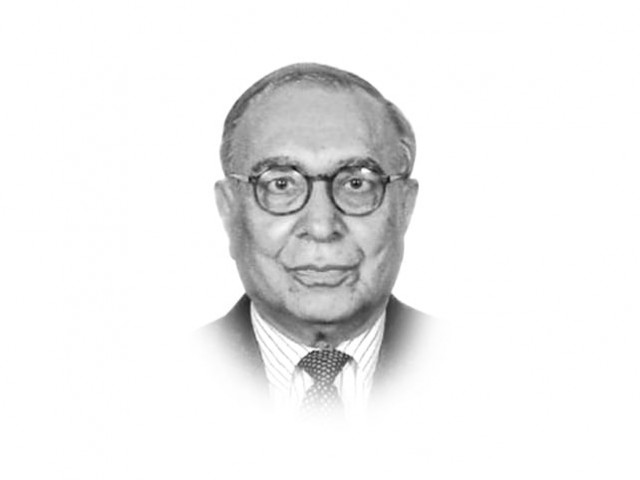Demystifying memogate
Haqqani is much too controversial to handle anymore Pakistan’s most difficult international relationship.

But then, what was the reason for Ijaz’s exertions during that blighted week of May 2011? Do we know the dramatis personae — the full cast — and not just the political adventurer, Mansoor Ijaz and the unlikely ‘fall guy’, Husain Haqqani? And why did Ijaz blow the whistle so soon by rushing to print? In a rolling story, one can only go by some facts and some conjectures.
One, the memo does exist as a monumental testimony to a crude conspiracy hatched and abandoned in haste. Two, linguistic analysis shows it was not drafted in Islamabad but in the United States, probably by the author of the Financial Times’ op-ed piece. Haqqani’s prose is much more elegant, though one cannot rule out his having ‘tweaked’ it. Determination of his contribution depends on whether the transcript of alleged ‘conversations’ with Ijaz is genuine or an audacious forgery.
We enter the world of conjecture as we ponder the plot further. The OBL curtain-fall was read and projected as a moment of the Pakistan Army’s ultimate humiliation. Presumably, short-sighted friends of Pakistan’s elected government saw in it an opportunity of all times to stage a coup against the army and the ISI with anticipated assistance from Washington. Ideas flew across continents and a mysterious ‘WE’ became the putative authors of a quixotic offer that took in even the skilfully concealed desire to place Pakistan’s nuclear programme under American control. Mansoor Ijaz also sketched the penumbra of the dark plot by suggesting preposterously that Jahangir Karamat and Mahmud Durrani were also on board and available for a new security and foreign policy team. The message to Washington was that the ‘We’ of the memo was a tactical euphemism for Zardari. With its global experience of civil and military establishments, Washington did not take the bait. End of the plot; time for a whistleblower and his inscrutable new motives.
Where does this leave Husain Haqqani? He has always maintained a lobby in Pakistan to advance his limitless ambition and used his intellectual and other gifts to establish a degree of control on President Zardari’s mind that, historically speaking, has brought sovereigns and empires to grief. He can, therefore, ride the storm. But there are several reasons why his present innings should come to a close.
He is much too controversial to handle anymore Pakistan’s most difficult international relationship. I have a large notebook containing extracts on the art of diplomacy from numerous sources, but the one that comes to my mind readily is not from Machiavelli, Metternich or Kissinger, but Spock saying in Star Trek : “I must acknowledge, once and for all, that the purpose of diplomacy is to prolong a crisis”. Surely neither Zardari nor Husain Haqqani would want to do that to the troubled Pakistan-US relations.
Robert Burns once wrote: “Oh would some power the giftie gie us / To see ourselves as others see us / It would from many a blunder free us, and foolish notion.” Right or wrong, most Pakistanis believe that Haqqani has worked for total American hegemony in Pakistan and that he has personally directed a media campaign to trash Pakistan’s China policy. Grossly oversized in his influence, ambition and reach, he has not only completely outgrown the traditional role of an ambassador but has also hobbled Pakistan’s foreign ministers, foreign secretaries and the cabinet. Husain Haqqani should now rise transparently to his full and complex stature by getting elected to parliament to cut Pakistani military and intelligence services to size and leave professional day-to-day diplomacy to lesser beings. Alternatively, he can give himself a sabbatical and write a bestseller.
Published in The Express Tribune, November 23rd, 2011.














COMMENTS
Comments are moderated and generally will be posted if they are on-topic and not abusive.
For more information, please see our Comments FAQ